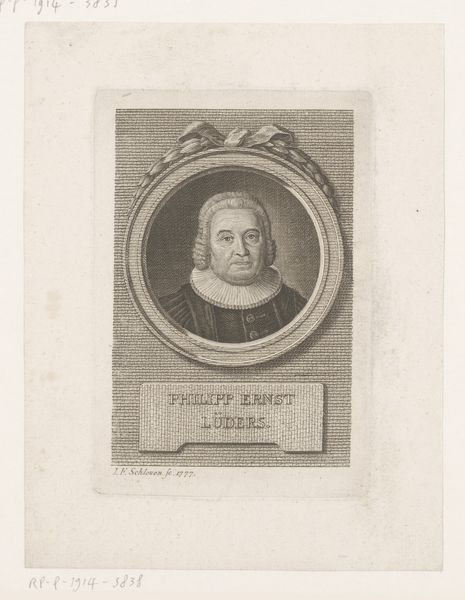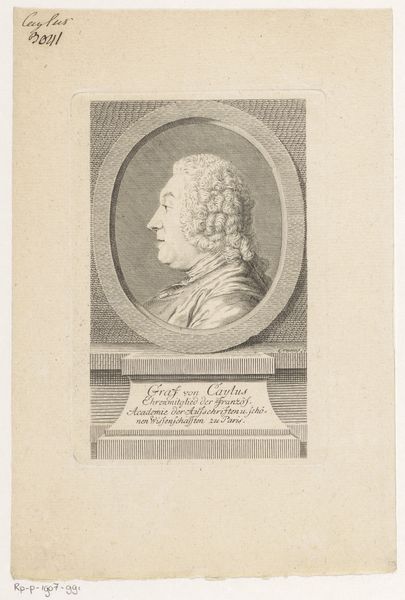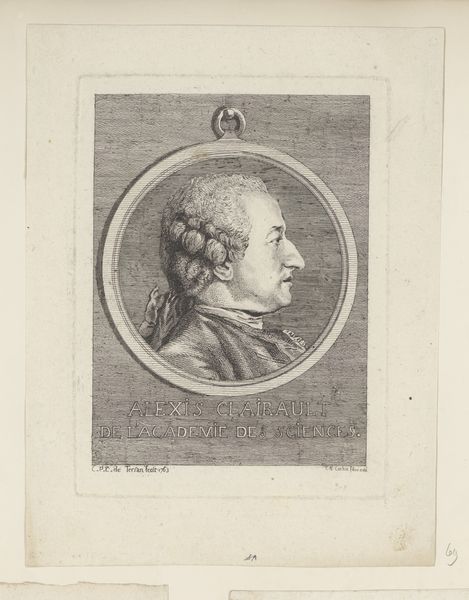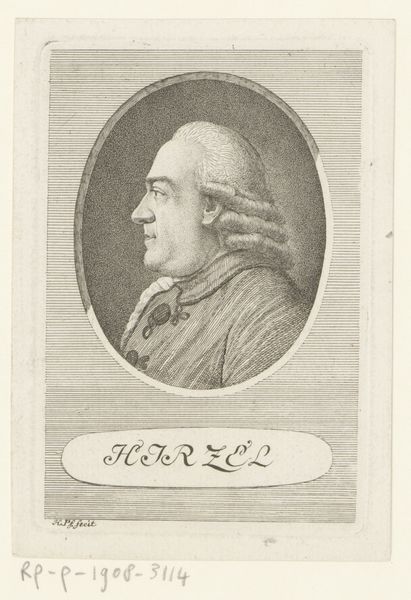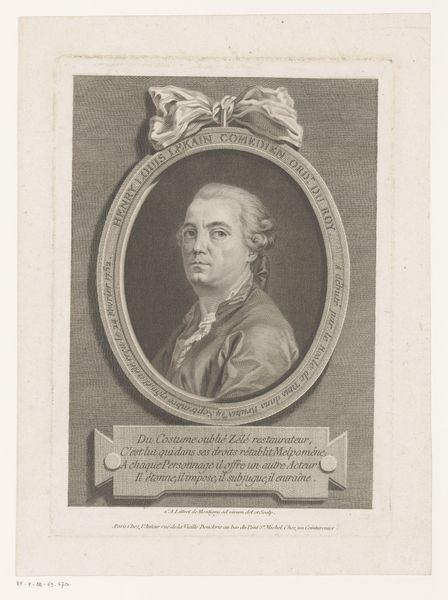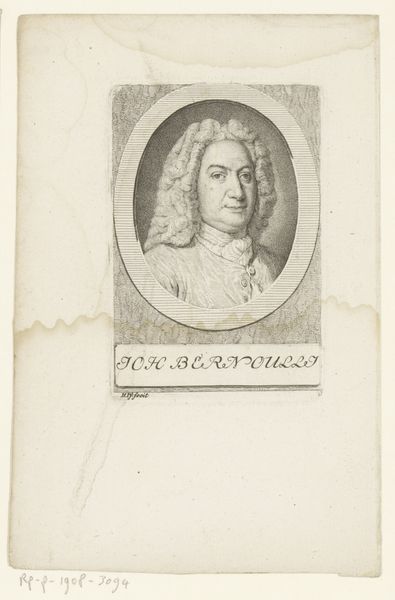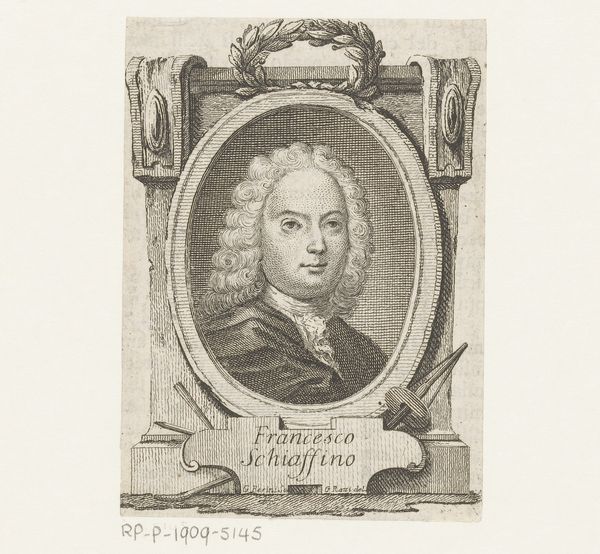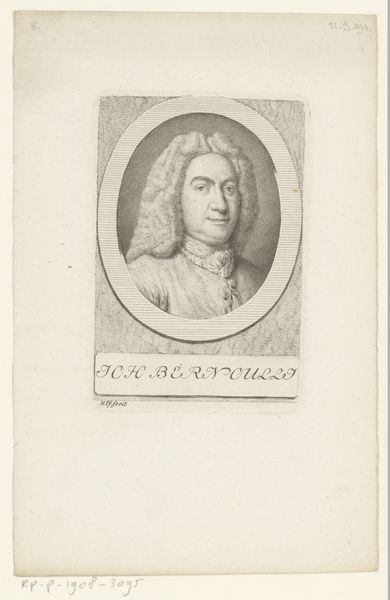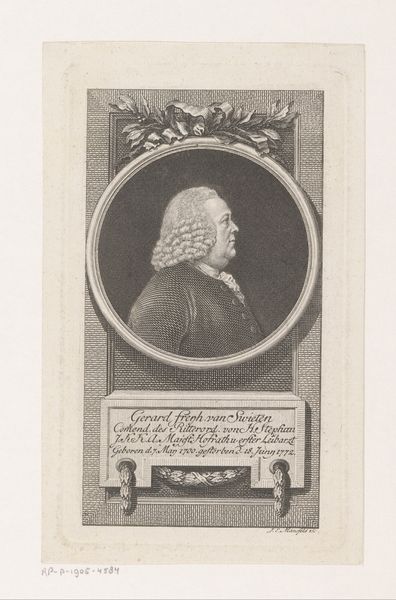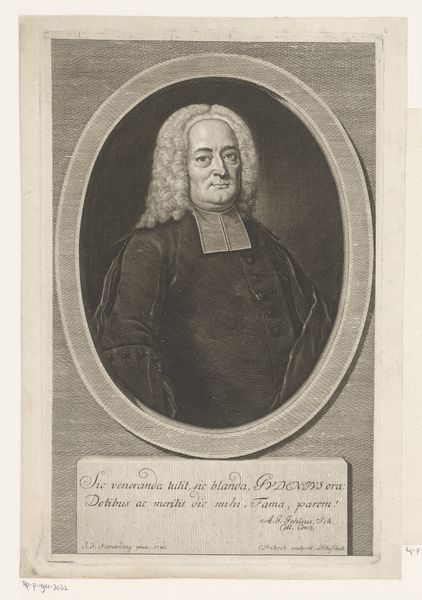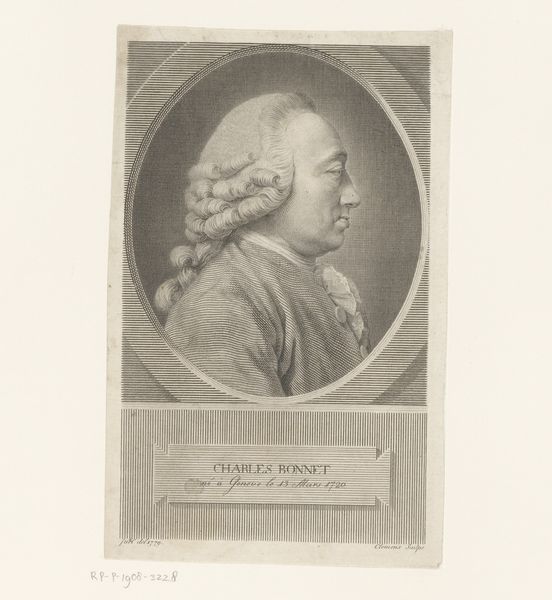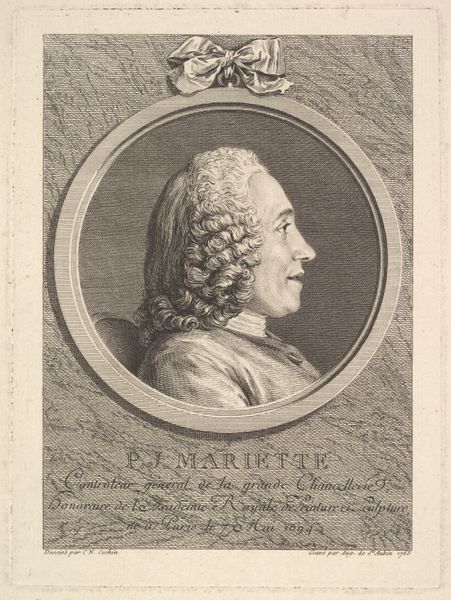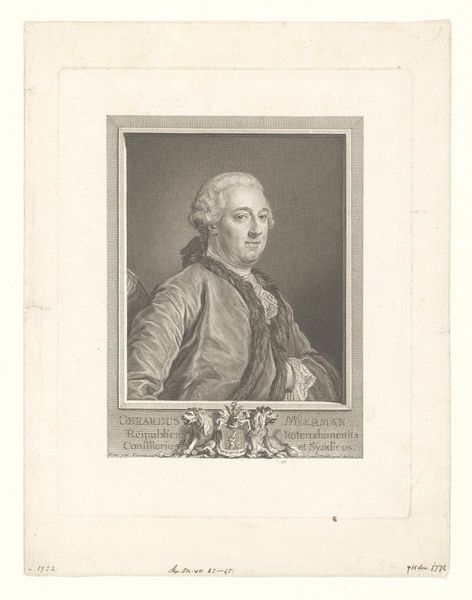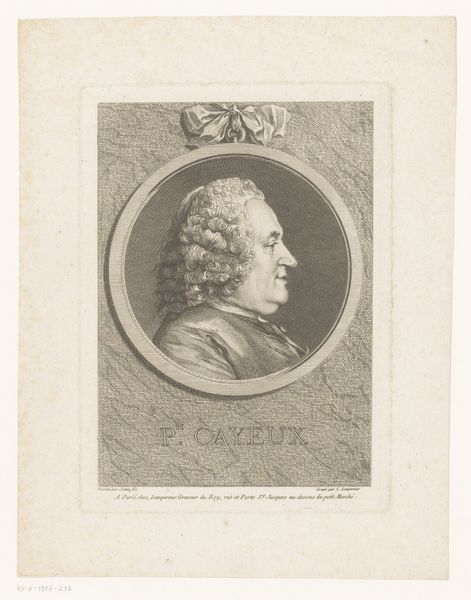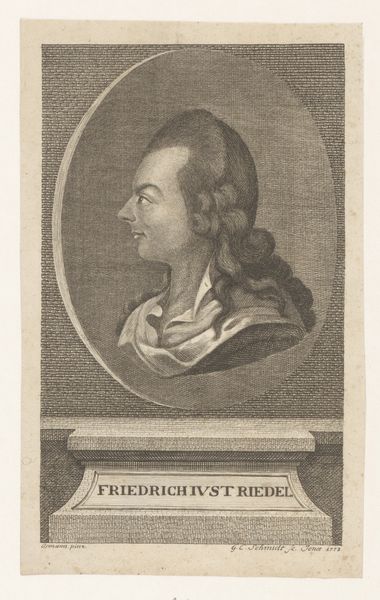
print, engraving
#
portrait
#
neoclacissism
# print
#
old engraving style
#
line
#
history-painting
#
academic-art
#
engraving
Dimensions: height 127 mm, width 86 mm
Copyright: Rijks Museum: Open Domain
Heinrich Pfenninger made this portrait of Johann Georg Gessner with etching, a printmaking technique. The portrait shows Gessner in profile, a common visual code for classical nobility. But who was Gessner? And why commission a portrait of him? Switzerland in the 18th-century was a nexus of intellectual and social change; from this small, neutral country, new philosophies and ideas radiated out across Europe. Zurich in particular was at the centre of this, with institutions such as the Collegium Carolinum promoting radical thinking and social reform. This portrait suggests Gessner was a man of importance, most likely linked to these institutions and social circles. As historians, we seek to understand the social networks that produce, promote, and value such images. Through careful research of archives, letters and institutional records, we can understand how the image of a man like Gessner was meaningful to his contemporaries. Only then can we appreciate art as something rooted in its social context.
Comments
No comments
Be the first to comment and join the conversation on the ultimate creative platform.
